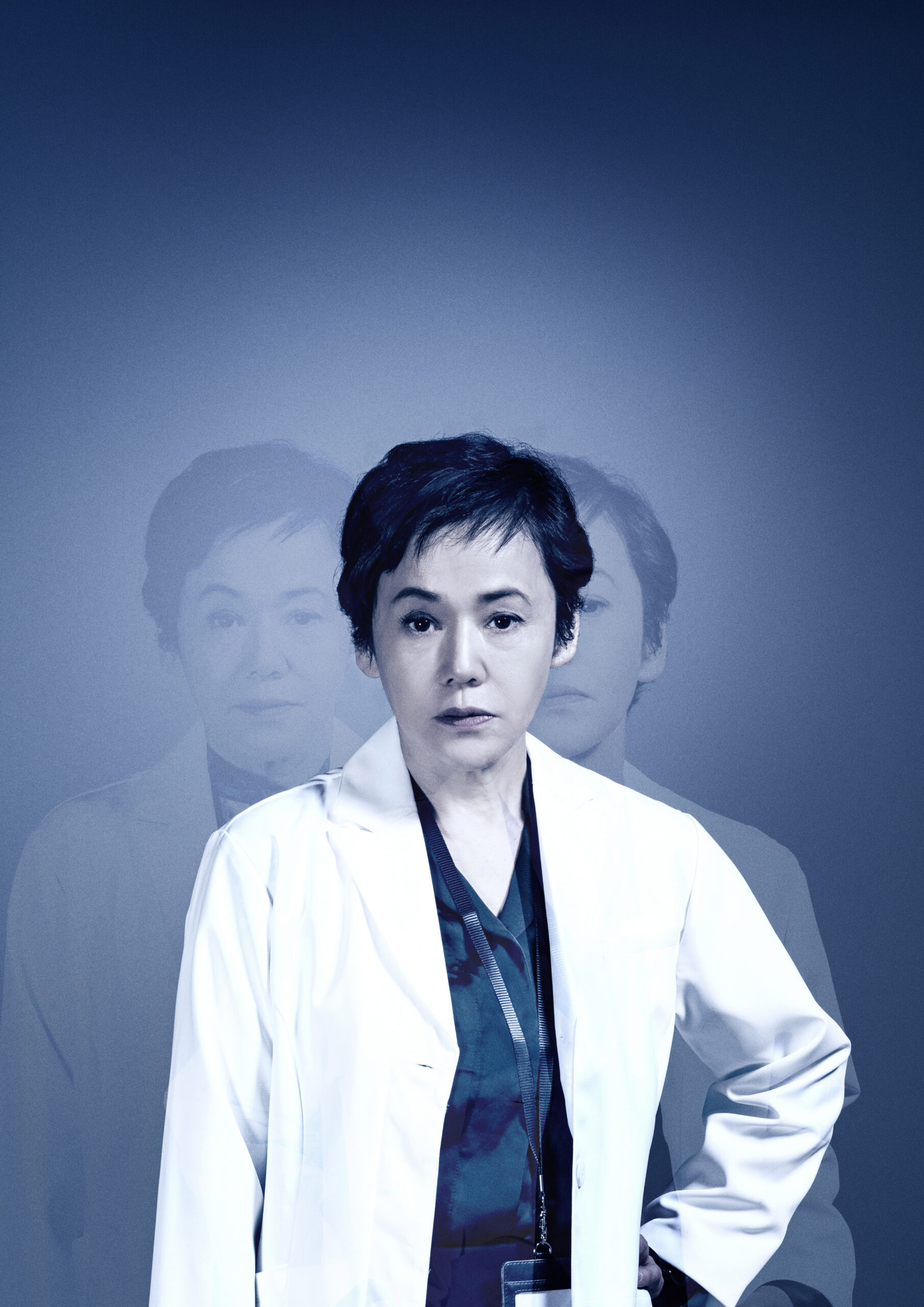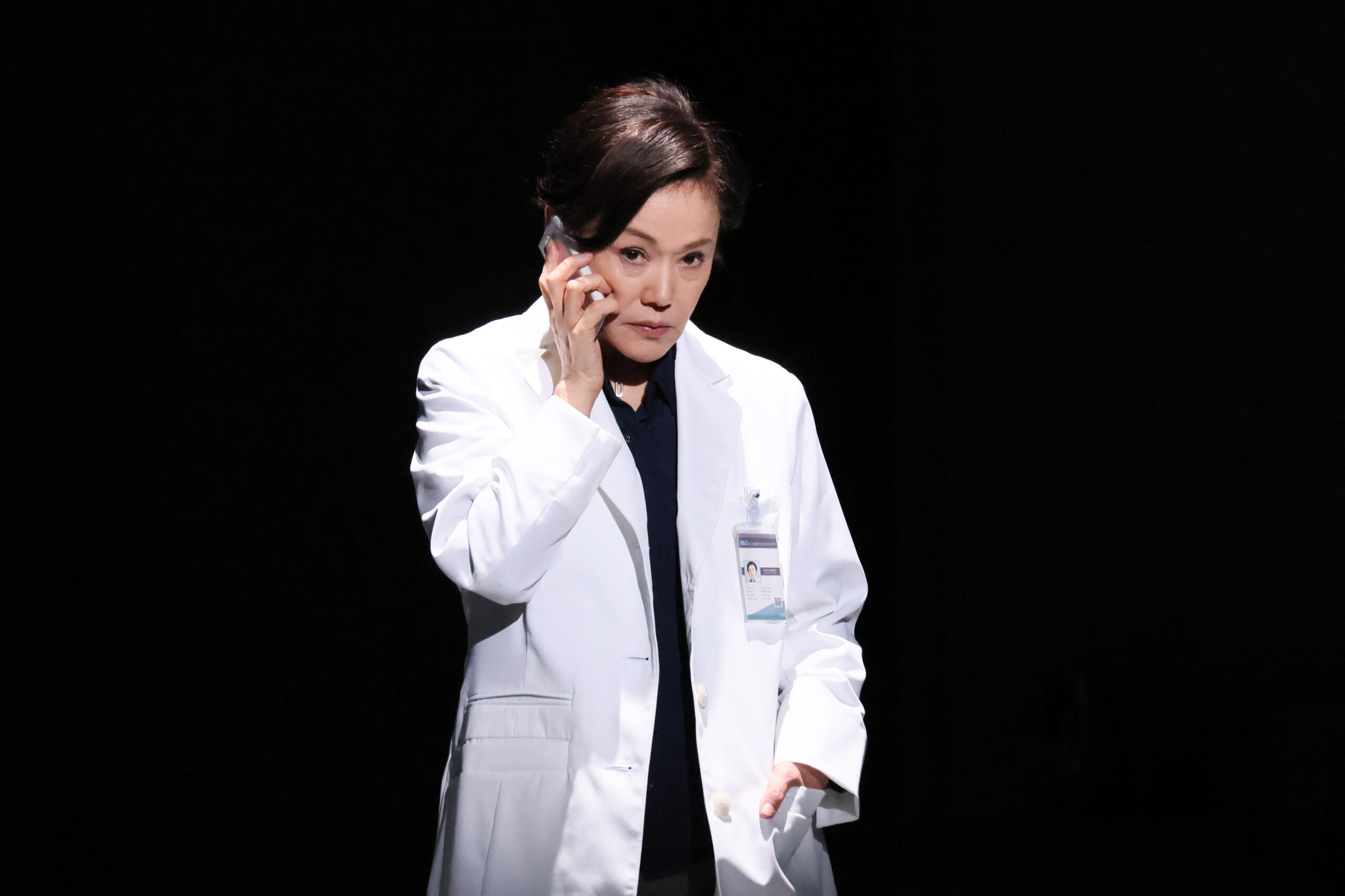-

Photo courtesy of PARCO theatre
Despite earning a raft of awards and sensational five-star reviews when it premiered at north London’s trailblazing Almeida theater in 2019, Robert Icke’s “The Doctor” fell foul of covid closures just as it was set to take the West End by storm.
Yet with London’s woes thankfully far distant from Tokyo, this latest work by the playwright/director hailed as the “great hope of British theater” is running now through Nov 28 at the Parco theater in Shibuya with the veteran director Tamiya Kuriyama at the helm and the great actress Shinobu Otake as Ruth Wolff in the title role.
“Actually, I had a chance to see the play at the Almeida, and though I couldn’t understand everything I was able to grasp the characters’ relationships and I got the story roughly. I especially enjoyed their arguments that happened in brilliant rhythm and tempo,” Otake said in our recent remote interview.
“Ah, also, I was greatly impressed by the main actress Juliet Stevenson. Her acting had true reality and she was so energetic and so cool.”
She recalled the day when she enthusiastically clapped her hands in the front row of the cozy theater — although, she said, back then she never dreamt she would soon be acting the role in Japan.
Otake, 64, who has received all kinds of actress’s prizes in both movie/TV and drama almost every year for decades, then outllined how she was tackling the Jewish woman doctor’s role in this play
Icke freely adapted from Viennese author Arthur Schnitzler’s 1912 “Professor Bernhardi.”
In this contemporary version with a female protagonist, Dr. Ruth Wolff is the founding director of a prestigious Institute specializing in Alzheimer’s
disease. One day, when a 14-year-old girl turns up dying from a self-administered abortion, Ruth refuses admittance on medical grounds to a Catholic priest (Toru Masuoka) intent on giving her the last rites.
As news of this reaches the hospital’s governing body old resentments surface. Then Ruth is soon also the focus of threats and a public scandal as the priest’s version of events goes viral involving all manner of trolls, racists, campaigners and spokespersons.
Before long, too, the girl’s father joins in, while with Ruth being a Jewish woman doctor, and the priest a black man, opinions based on people’s social, racial backgrounds and contending values flood SNS.
Otake confessed that she was so surprised when she read the play again for this time’s performance, as there are so many issues, such as gender, religion, Alzheimer’s, medical ethics and medical systems.
“I understand that Ruth is an intelligent, strong and cool woman, but she definitely has a weakness which doesn’t usually show itself at her workplace. This kind of self is common for everybody, but I realize anew that people can’t simply judge a person, because people usually have several different personalities at the same time.
“I suppose Ruth had self-confidence that she always made the right decision. However, even though she didn’t intend it, she hurt someone without noticing. I think such kind of contradictions of human being, namely, people are not able to be a 100% perfect figure, is one of the very interesting points of this play.”
Otake admitted this English play contains lots of different culture from Japan, but she insisted on the meaning of seeing different cultures and other countries’ current affairs through contemporary theater.
“Many people in Japan today live without having conflicts due to religion and race. However, through our staging of this English drama, which intertwines intricately several sensitive issues like Jews and Christians etc., I hope audiences realize what is happening outside Japan and feel the other country’s issues as being relevant to themselves. Perhaps it will even change Japanese people’s view by seeing this play depicting brilliantly today’s England.
“That’s the important role of doing foreign dramas and that’s why I want many young people to see this play.”
She analyses the key to the big success of the English production as its reality. She felt the actors were having real debates vividly happening in front of her eyes. So how will she and her team create such reality on stage?
“When I act Ruth in the rehearsal room, I become sensitized to other characters’ reactions.? Though someone may try to hide their real intention, he/she can’t do it so well instantly. So, even in the speedy and aggressive conversations, I carefully observe the other person’s first and honest reaction.
“It’s very delicate and detailed things like this the actors need to worry about. So we specially and carefully mind each word. Which particular word do I need to react to or be angry about? We must make that point as clear as possible to tell this story.”
In the last scene of the play, after Ruth lost everything — her occupation, her social position and a good friend — she met the priest again. While the priest talked calmly to her saying, “It’s difficult to hear each other over all the history crashing around us like waves, Ruth commented: “I feel things are ending. The post-war institutions, the post-war ideals…. Starting to crack.”
Otake said she feels various different meanings in Ruth’s words. While she thinks about the pandemic the main thing she takes away is that it is the time to change,
“On the other hand, I believe we’d better find the hope there. Always having hope for the future, that may be our salvation.”
In the end, she urged people to come to the theater and see the live stage at close quarters.
“During the pandemic, many theaters had their online distribution. But I want to say in a loud voice that theater must be a live performance. Otherwise, fewer people just know the “real thing.” ‘The Doctor’ is a very thrilling conversational drama and you may laugh at seeing humans’ twisted ways of thinking.
“But I hope many people will enjoy our machine gun talk battle as I experienced it in London.”
“The Doctor” runs till November 28 at the Parco Theater in Shibuya, Tokyo. For details, call 03-3477-5858 or visit http://stage.parco.jp/.

